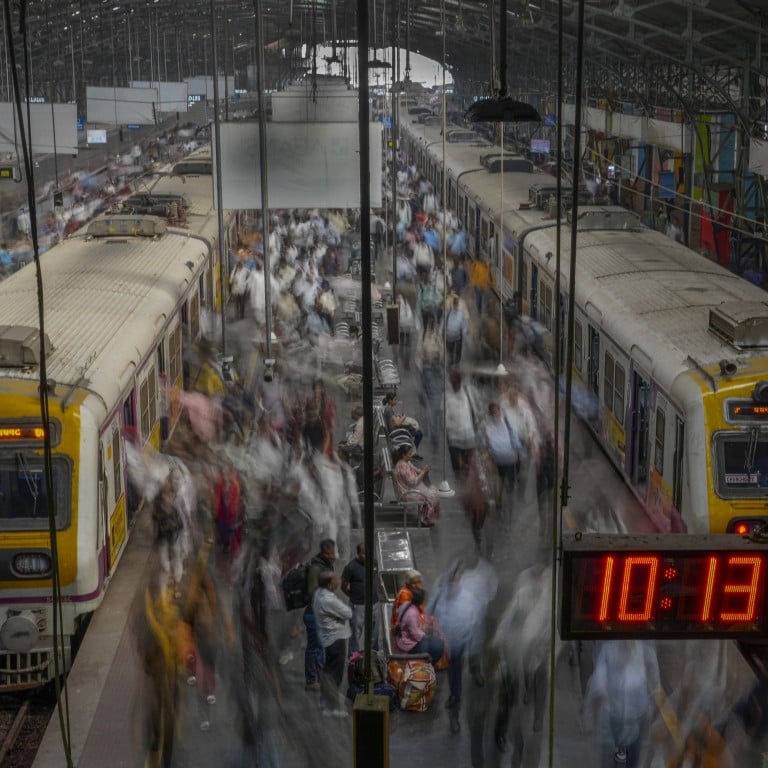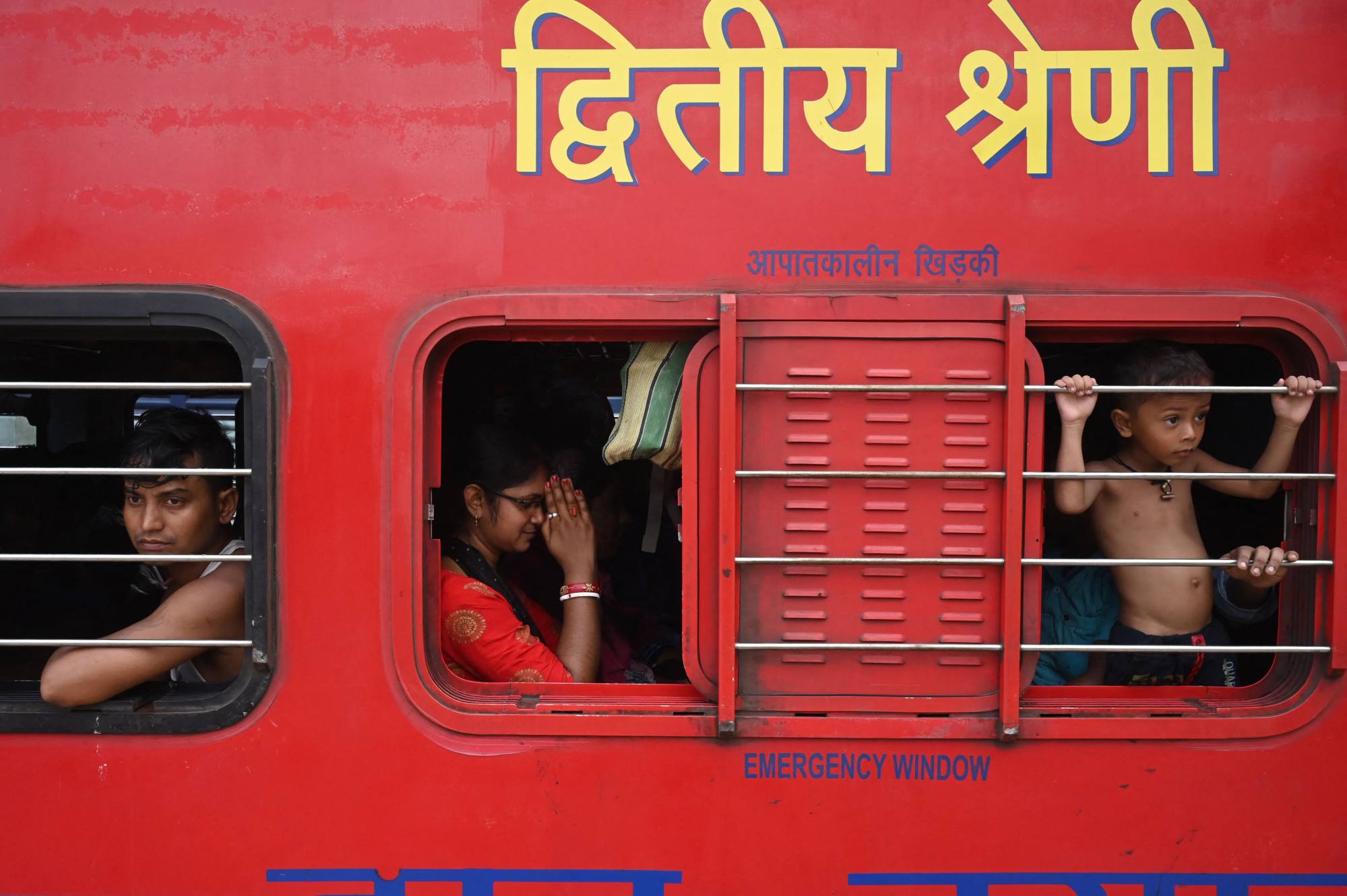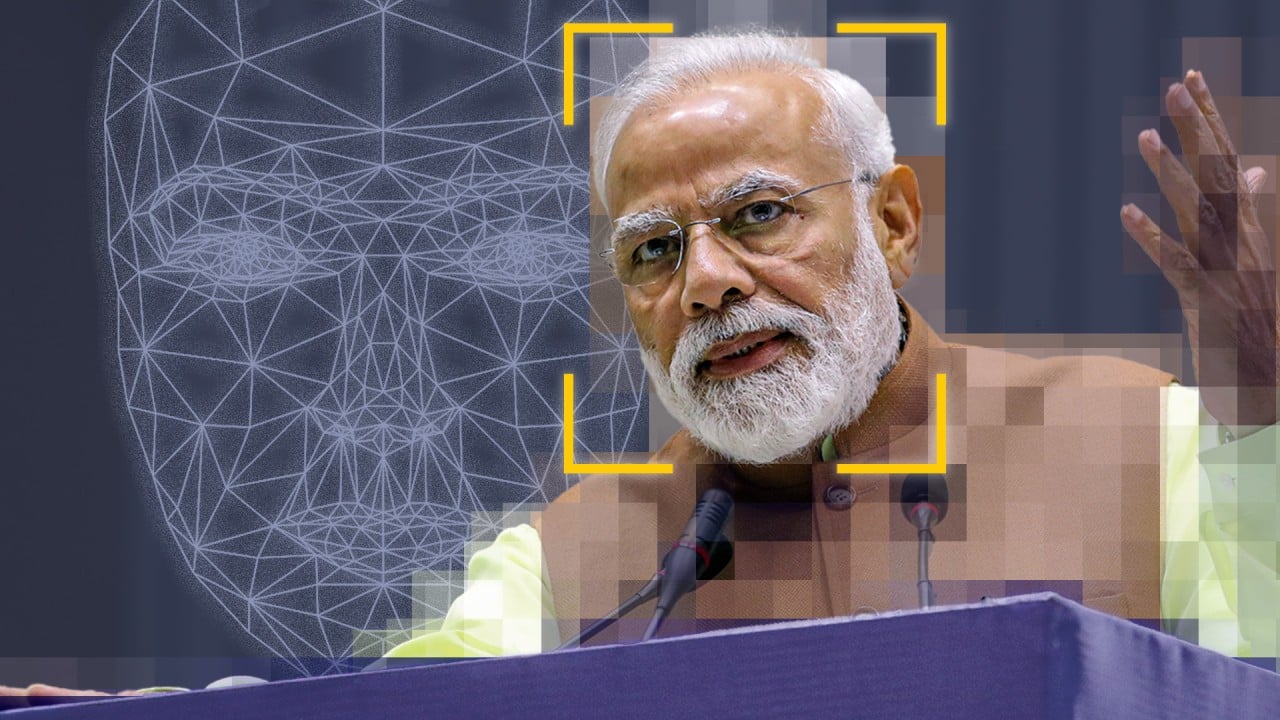
India has seen a record 411 million train passengers in April, as people rush to vote, attend Hindu weddings
- India, where trains are vital transport for the lower class, saw a record 411 million passengers ride the country’s railways in the first three weeks of April
- The recent surge of passengers is due to ongoing national elections and a cluster of astrologically auspicious dates, typically used for Hindu weddings
By comparison, that same period in April last year saw 370 million train passengers. During the peak surge from April 20-21, Indian Railways (IR) serviced 33.8 million passengers across the 14,300 trains it operates daily.
The surge saw passengers crammed into every square centimetre of some train carriages, from the corridors to the luggage racks and even in the toilets.
We were squeezed so tight that I clambered up onto the luggage rack and laid down on that. I had to get there no matter what because I had bought my niece’s wedding jeweller
However, this year’s predicted auspicious days were far fewer than usual in April and extend only to early May, meaning many more people had to travel to weddings across a smaller number of days.
Sameer Verma, a vegetable and fruit vendor in south Delhi, travelled to the city of Ranchi on April 6 for his niece’s wedding without a reserved ticket. No seats were available on the Sampark Kranti Express, so he jumped into a general coach carriage, where people without a reservation can travel.
“There was no space to breathe or move my elbow. We were squeezed so tight that I clambered up onto the luggage rack and laid down on that. I had to get there no matter what because I had bought my niece’s wedding jewellery,” he told This Week in Asia.
Secular India’s fate hangs by a thread with Modi’s BJP ‘hell-bent’ on a huge win
The other reason for the rush is the general election that is under way across India. Cities are full of migrant workers who are registered as voters in their villages and thus must travel to cast their ballots.
“Am I going to go home and vote? Of course I am,” said Arun Das, who works as an electrician in New Delhi. “But I’m only taking a couple of days off and coming back, whether I get a ticket or not.”
When social media was flooded with videos taken by Indian passengers furious at the overcrowding, IR responded, saying they organised extra trains to cope with the rush.
Additionally, the Railways posted its own video on X, saying “No overcrowding. Please don’t malign the image of Indian Railways by sharing misleading videos.”
A journalist, who asked not to be named, said he saw the chaos first hand on April 19 when his newspaper asked him to report on the election. His editor suggested he travel on the Brahmaputra Mail from Assam to Delhi to chat with passengers about who they were going to vote for, but overcrowding thwarted those plans.

“It was impossible to walk down the aisles. You couldn’t find anywhere to put your feet. Passengers were in the toilets, in every nook. But somehow, everyone cooperated.”
“Train journeys have become a punishment under Narendra Modi’s rule! Passengers of every category are being harassed by the Modi government, which is promoting only elite trains by reducing general coaches from common people’s trains,” Gandhi wrote in the post.
On March 12, Modi inaugurated the roll-out of 10 new trains, which critics say are for middle class passengers, not the poor who cannot afford tickets and have to travel in the overcrowded trains.
Despite the proliferation of airports and air travel in India, trains remain the country’s lifeblood and a vital means of transport for lower class Indians.
India’s railway network is mammoth, spanning some 40,000 miles of track, and services some 13 million passengers on average daily. That’s even more than China, which sees 11.15 million train passengers each day, according to the People’s Daily Online.


